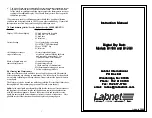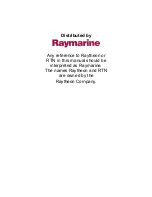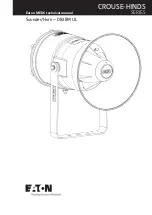
Chapter 3, Disposable Set Description
55
Haemonetics
®
Cell Saver
®
Elite
®
User Manual
P/N 120745-IE, Manual revision: AA
Vacuum Line
Caution:
Use of an incorrect or non-Haemonetics vacuum line may affect
suction performance and damage the device.
The single-use, filtered vacuum line connects the vacuum port on the rear
panel of the device to the vacuum port of the reservoir. The vacuum line
contains an in-line hydrophobic filter that provides overflow protection to the
device.
Figure 26, Example of a filtered vacuum line
1.
2.
3.
1. Hydrophobic filter
2. Reservoir vacuum port
connection
3. Device vacuum port
connection
















































